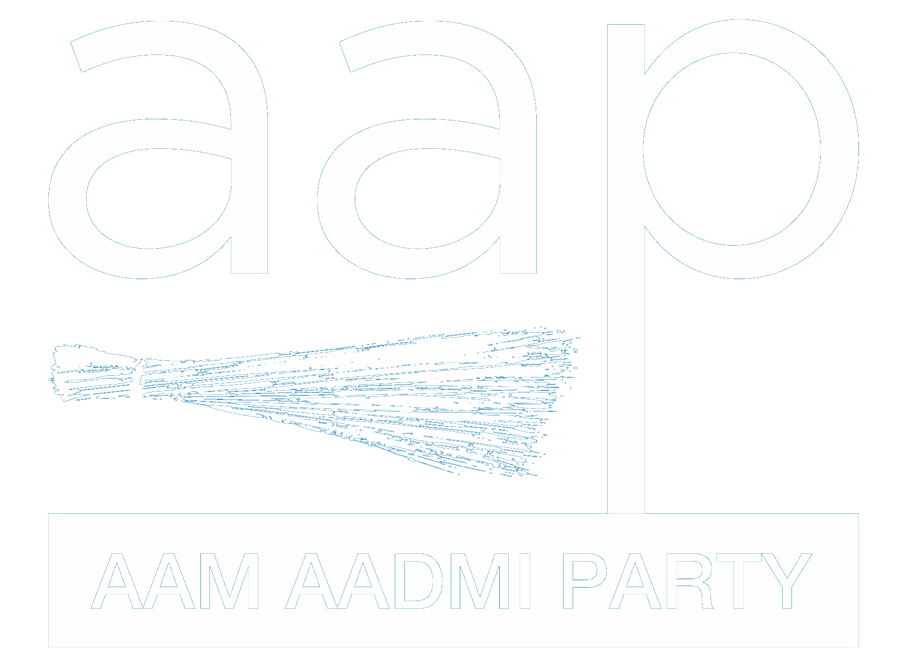As a party born out of a historic anti-corruption movement, the Aam Aadmi Party holds itself to the highest standards of probity. People were tired of the status quo, nepotistic, dynastic, corrupt, criminal and communal nature of our politics, and AAP’s emergence was a breath of fresh air in this backdrop. There are several reasons that make the Aam Aadmi Party unique and synonymous with the idea of honest and alternative politics in India:
The Anti-Corruption Crusader
As a political successor of the 2011 anti-corruption movement, the commitment to end corruption from politics and government forms an integral part of the party’s values and its reason for existence. Under no circumstance will the party compromise its position on the issue of corruption. The AAP is the only political party that avowedly adopts the anti-corruption platform, tries actively to live by it and wears it as a badge of honour – even as its leaders and volunteers face growing political intimidation and grave personal risk.
After winning a landslide majority in the 2015 Delhi elections, the AAP government has taken on dangerous and powerful individuals and corporations to secure the rights of the people and in the process vanquished several mafia running Delhi – water tanker mafia, contractor mafia, power company mafia, private school/college mafia etc. A report by the Central Vigilance Commission in 2017 noted that corruption-related complaints against those in the Delhi government had reduced by 81%.
Transparent Electoral Funding
Ever since it was formed in 2012, the Aam Aadmi Party has been setting the benchmark for transparency and probity in political funding in India. AAP is the only party that reports the identity of every single donor to the Election Commission and Income Tax department, despite being required by law to disclose identities of only those donors who donate over Rs 2,000. 92% of the funds received by AAP are from known sources through cheques and electronic transfers. The 8% funds received in small cash donations is deposited in banks and fully accounted for.
In comparison, as per Association of Democratic Reforms (ADR) report in 2017:
- Only 30% of the funds received by all political parties in India are from known sources and 63% is received in cash.
- Only 17% of the funds received by Congress are from known sources
- Only 35% of the funds received by BJP are from known sources
Belief in Secular Ideals and Social Justice
AAP stands for the preservation of India’s ancient composite culture and modern India’s staunchly secular and liberal ideals. The party rejects majoritarianism in every form and believes firmly in the Constitution of India. It also rejects the politics of appeasement and ‘vote bank’. Every citizen of India is equal before the government. Wherever inequality persists and communities are marginalised, the party believes that every effort should be made to create a level playing field. Those who have less in life must have more in law.
Commitment to Pro-People Governance
AAP’s governance record in Delhi speaks for the pro-people agenda of the party – offering lifeline water free, creating a globally acclaimed and India’s first three-tier Universal Healthcare model in cities, radically transforming education in government schools, raising minimum wages to the highest in the country, among several others,. The interests of the aam aadmi are always placed above any other interests. Vested interests never have or will drive the agenda of the party at any level.
Rejection of VIP culture
AAP is India’s first political party to reject the use of red beacon cars for elected representatives and Ministers. In 2013, Chief Minister Arvind Kejriwal’s Cabinet became the first to shun the use of red beacons of their official vehicles. This set the tone for other political leaders and parties to follow ever since.
All of Delhi’s Ministers are fully accessible to the public without appointment at their official residences between 10 am and 11 am every morning from Monday to Friday.
Strict Rules Against Dynastic Politics
AAP’s Constitution forbids two members of the same family to contest elections or to hold a position on an executive body of the party. AAP believes that political dynasties have monopolised entire parties and governments for decades, which has damaged the democratic vision of the founding fathers of our country.

